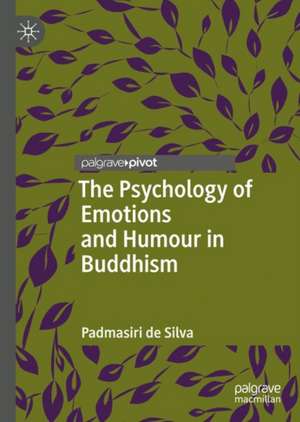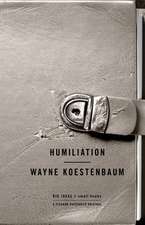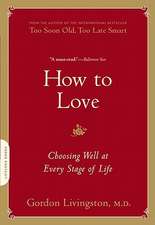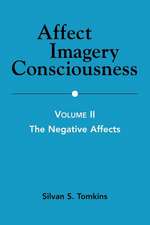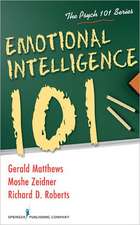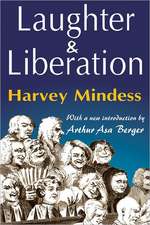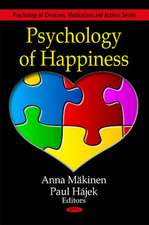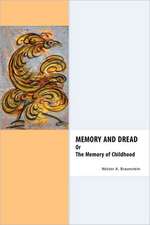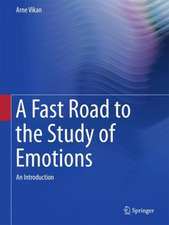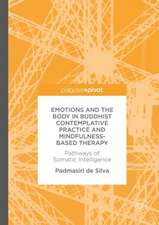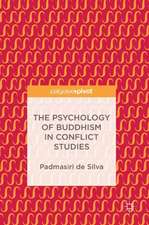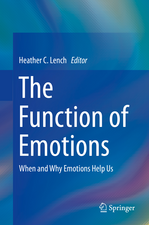The Psychology of Emotions and Humour in Buddhism
Autor Padmasiri de Silvaen Limba Engleză Hardback – 28 sep 2018
Preț: 415.77 lei
Nou
Puncte Express: 624
Preț estimativ în valută:
79.56€ • 83.06$ • 65.84£
79.56€ • 83.06$ • 65.84£
Carte tipărită la comandă
Livrare economică 04-18 aprilie
Preluare comenzi: 021 569.72.76
Specificații
ISBN-13: 9783319975139
ISBN-10: 3319975137
Pagini: 63
Ilustrații: XXVII, 80 p.
Dimensiuni: 148 x 210 x 14 mm
Greutate: 0.29 kg
Ediția:1st ed. 2018
Editura: Springer International Publishing
Colecția Palgrave Pivot
Locul publicării:Cham, Switzerland
ISBN-10: 3319975137
Pagini: 63
Ilustrații: XXVII, 80 p.
Dimensiuni: 148 x 210 x 14 mm
Greutate: 0.29 kg
Ediția:1st ed. 2018
Editura: Springer International Publishing
Colecția Palgrave Pivot
Locul publicării:Cham, Switzerland
Cuprins
Preface; Deegalle Mahinda.- Author’s Preface.- Chapter 1. Mindful Emotions.- Chapter 2. The Emotion of Anger.- Chapter 3. Greed, the Acquisitive Drive and Sensuality.- Chapter 4. A Buddhist Perspective on Contemporary Social Pathology.- Chapter 5. The Buddha’s Technique of Teaching and the Use of Parables and Similes.- Chapter 6. Conceit and Pride.- Chapter 7. The Deep Philosophy within Zen Humour.- Chapter 8. The ‘Comic’ in Kierkegaard’s Three Stages in Life and Their Parallels in Buddhism.- Chapter 9. Theories of Humour.- Chapter 10. Buddhist Perspectives on Fear.- Chapter 11. Emotional Integrity and Resilience.
Recenzii
“Readers will like the book because of the humourous stories that are both useful and entertaining. … Easy-to-understand and succinctly defined Buddhist words enable lay Buddhists and others unfamiliar with Buddhist jargon to readily comprehend the book. Advanced readers and academics will also benefit from the wealth of knowledge … . Overall, the book is worth reading for anybody interested in learning how humour can lead to mindfulness, and therefore to escape from the impurities of right living.” (Chandima Gangodawila, Reading Religion, readingreligion.org, January 24, 2022)
Notă biografică
Padmasiri de Silva is Adjunct Research Associate at Monash University, Australia. He has a PhD in East-West Comparative Philosophy and an Advanced Diploma in Counselling. His publications include Buddhist and Freudian Psychology, The Environmental Philosophy of Buddhism and An Introduction to Buddhist Psychology and Counselling.
Textul de pe ultima copertă
This book examines the psychological dimensions of emotions and humour in Buddhism. While there is a wealth of material concerning human emotions related to humour and the mindful management of negative emotions, very little has been written on the theory of Buddhist humour. Uniting both Buddhist and Western philosophy, the author draws upon the theory of ‘incongruity humour’, espoused by figures such as Kierkegaard, Kant and Hegel and absorbed into the interpretation of humour by the Buddhist monk and former Western philosopher, Ñāṇavīra Thero. The author makes extensive use of rich primary sources such as the parables used by Ajahn Brahm while interweaving Western theories and philosophies to illuminate this original study of humour and emotion. This pioneering work will be of interest and value to students and scholars of humour, Buddhist traditions and existentialism more widely.
Caracteristici
Includes a foreword by Professor Venerable Deegalle Mahinda Explores the little discussed theory of Buddhist humour Draws on theory of 'incongruity humour' to discuss humour and emotion in Buddhism
